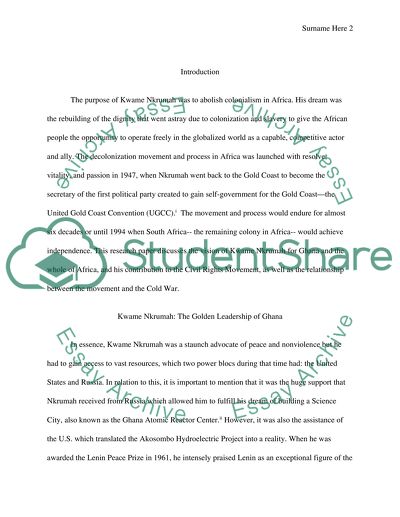Cite this document
(“Kwame Nkrumah and the relationship between the Civil Rights Movement Research Paper”, n.d.)
Retrieved from https://studentshare.org/history/1493381-kwame-nkrumah-and-the-relationship-between-the
Retrieved from https://studentshare.org/history/1493381-kwame-nkrumah-and-the-relationship-between-the
(Kwame Nkrumah and the Relationship Between the Civil Rights Movement Research Paper)
https://studentshare.org/history/1493381-kwame-nkrumah-and-the-relationship-between-the.
https://studentshare.org/history/1493381-kwame-nkrumah-and-the-relationship-between-the.
“Kwame Nkrumah and the Relationship Between the Civil Rights Movement Research Paper”, n.d. https://studentshare.org/history/1493381-kwame-nkrumah-and-the-relationship-between-the.


